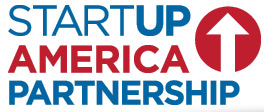A couple of weeks ago in my opinion blog “Awake at 3 o’clock” I pointed out that politicians pronouncing small business owners as the saviors of the economy is a misplaced strategy. (“SMB isn’t the cure for the economy“) Most SMB owners are ageing Boomers, disinclined to take big risks as they seek greater retirement security.
Now the government is rolling out a new program “Startup America” to foster the development of innovative entrepreneurs. The program will support early-stage companies by improving access to capital, mentorship and education while reducing red-tape and regulatory barriers.
I’m proud to note that as the owner of a franchise of The Alternative Board, I will be included in the participating mentorship partnerships.
I’m also inclined to favor an organization with a Board of real entrepreneurs. Folks like Michael Dell and Magic Johnson presumably are still close enough to their startups to remember what it was like. The CEOs of Under Armour, FedEx and LinkedIn all built companies from scratch. No politicians – now there’s a worthy idea.
As good an idea as this is, I have a not-unexpected skepticism of the role of government in the business markets. I work with a number of 8-A, HUB, WBE and other businesses that enjoy some special status in government contracting.
I’m not going to riff on the “Caucasian Males Get Shortchanged” theme. The programs that favor folks who were traditionally shut out of a lot of opportunity have a purpose. They really don’t (contrary to the belief of a lot of those left on the outside) steer a lot of work to those classifications. It is a tool that lets you hunt work, but it doesn’t just dump money in your lap.
What it does is make a lot of large corporations look at subcontractors and vendors they would otherwise ignore. I’m not sure if a giant multinational surrounded by small businesses, like pilot fish around a shark, is a good thing or not. It is, however, an opportunity. What it clearly does as well is to wrap a whole lot of regulation around the process of choosing a vendor.
So I wonder if “reduced” regulation can really mean “May the best ideas win” in a government controlled environment. How will ideas be judged? Will there be room for the next Under Armour, which is “merely” another, albeit innovative clothing company? Or will we quickly see a predisposition towards “cool” industries – clean energy, technology, and the Internet?
An interesting feature of the Board is the number of members whose companies are largely or wholly based in the USA. I’m entirely in favor of building jobs at home, but it is a global marketplace. Might there be a bias towards companies that locate in the “right” area or hire from the “right” population?
How does a government-supported organization not have politically correct agenda?
Let’s hypothesize an example. One company is working on an idea for storage cells, located in Gary, Indiana, with a business plan that calls for fabrication and distribution by training high school dropouts in depressed inner-city neighborhoods. Another has a similar product concept, but plans on developing it with an international team of engineers located both here and in Asia, and manufacturing where it costs the least.
The latter company may have the better idea, but can Startup America handle a headline that says “Taxpayer Supported Businesses Send Their Jobs to India?”
Could the current (or any) administration say “We think  entrepreneurial creation is a chaotic and wide-open world. We accept the fact that not all will succeed, not all will get a fair shake in the marketplace, and not all will do things in a manner that pleases everyone. In the long run, we think making something happen is more important than trying to only make the right things happen.”
entrepreneurial creation is a chaotic and wide-open world. We accept the fact that not all will succeed, not all will get a fair shake in the marketplace, and not all will do things in a manner that pleases everyone. In the long run, we think making something happen is more important than trying to only make the right things happen.”
I’d love to see it, but I can’t quite envision it. None the less, I plan on finding out how I can support Startup America. Standing on the sidelines being cynical isn’t accomplishing anything. I do believe that making something happen is better than worrying about whether it’s exactly the right thing.

One Response to Can Startup America revive US small business?